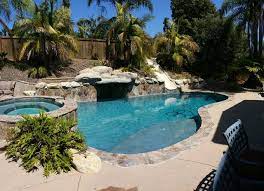Creating an eco-friendly swimming pool is more than a trend; it’s a commitment to sustainability, efficiency, and harmony with nature. For homeowners and developers looking to minimize their environmental footprint while enjoying a refreshing swim, designing a sustainable pool offers a wealth of benefits. This article explores key aspects of eco-friendly pool design, providing insights and tips for building a pool that’s both environmentally responsible and beautifully designed.
Why Choose an Eco-Friendly Pool Design?
Opting for an eco-friendly swimming pool design means prioritizing sustainability and energy efficiency. Traditional pools often require significant water, energy, and chemical use, which can lead to environmental degradation. By choosing sustainable options, you reduce these impacts, save on operation costs, and contribute positively to the environment. These designs can enhance property value and appeal to increasingly eco-conscious clients and tenants.
Innovative Water Conservation Techniques
Water conservation is a critical component of eco-friendly pool design. Consider implementing advanced systems such as rainwater harvesting or installing covers to minimize evaporation. Additionally, variable-speed pumps can significantly reduce water waste by optimizing filtration cycles. Incorporating these technologies not only conserves water but also cuts down on utility bills, providing long-term savings while maintaining a pristine pool environment.
Energy Efficiency for Sustainable Pools
An environmentally friendly pool design isn’t complete without energy-efficient solutions. Opt for solar heating systems that harness the sun’s power to maintain comfortable water temperatures year-round. LED lighting offers a sustainable alternative to traditional bulbs, reducing energy consumption while providing a bright and inviting atmosphere. Investing in efficient heating and lighting solutions diminishes environmental impact and supports sustainable living goals.
Eco-Friendly Materials and Maintenance Practices
Select durable, sustainable materials for your pool’s structure and decking to ensure longevity and minimal maintenance. Recycled glass tiles, for example, are not only stylish but also sustainable. Furthermore, natural pool systems use plants to filter and clean the water, eliminating the need for harsh chemicals. By adopting these maintenance practices, pool owners enjoy a healthier swimming experience and contribute to a greener planet.
Designing an eco-friendly swimming pools offers numerous benefits, from reduced environmental impact to cost savings. By focusing on water conservation, energy efficiency, and sustainable materials, you can create a swimming oasis that aligns with your eco-conscious values. Explore these options to make a positive impact on the environment while enjoying the luxury of your sustainable pool.
Dive into Sustainability with Eco-Friendly Swimming Pool Design

Categories:


